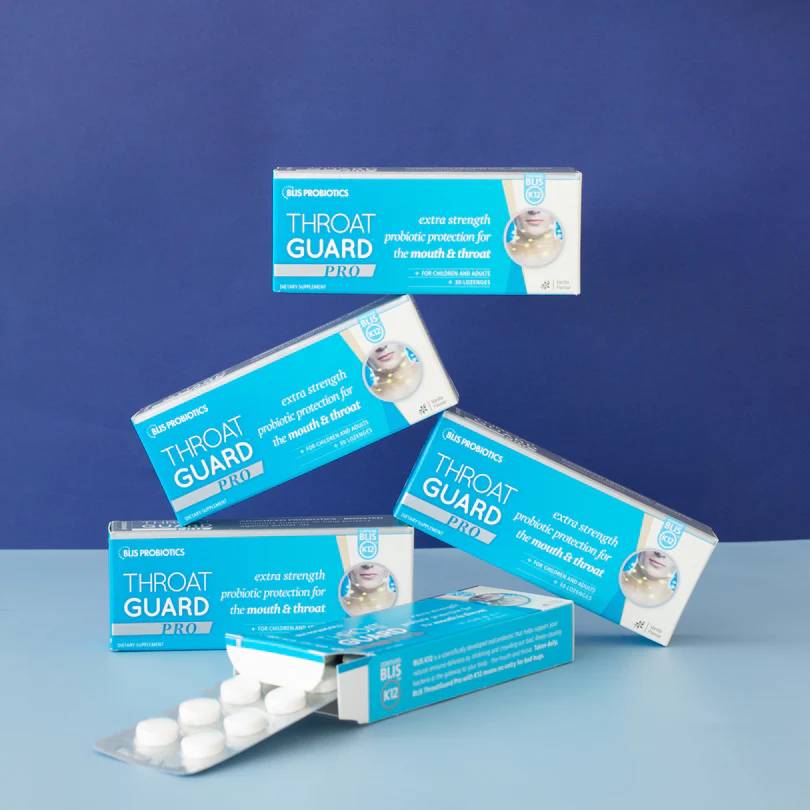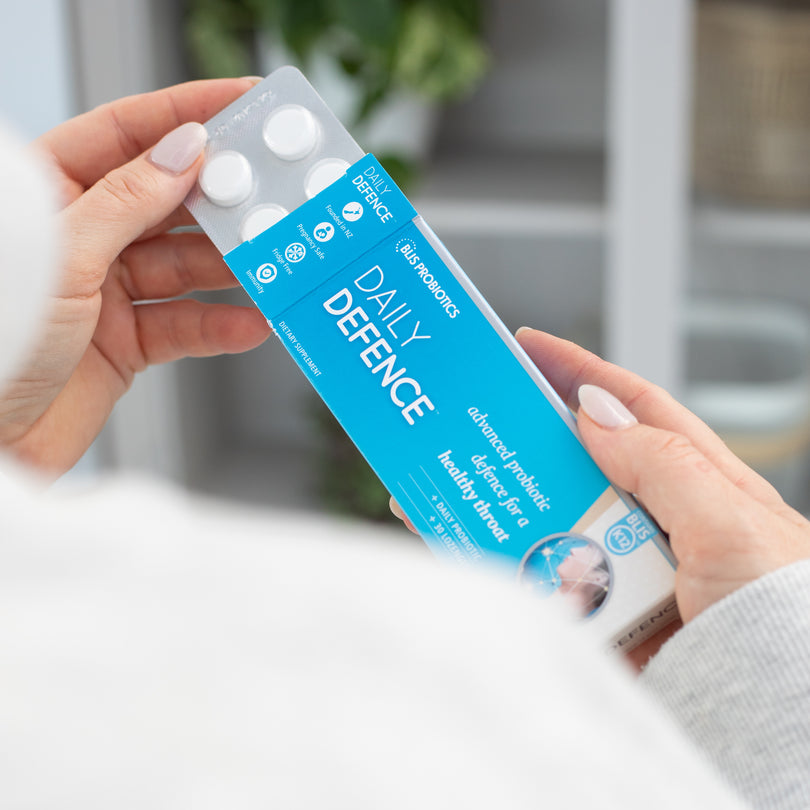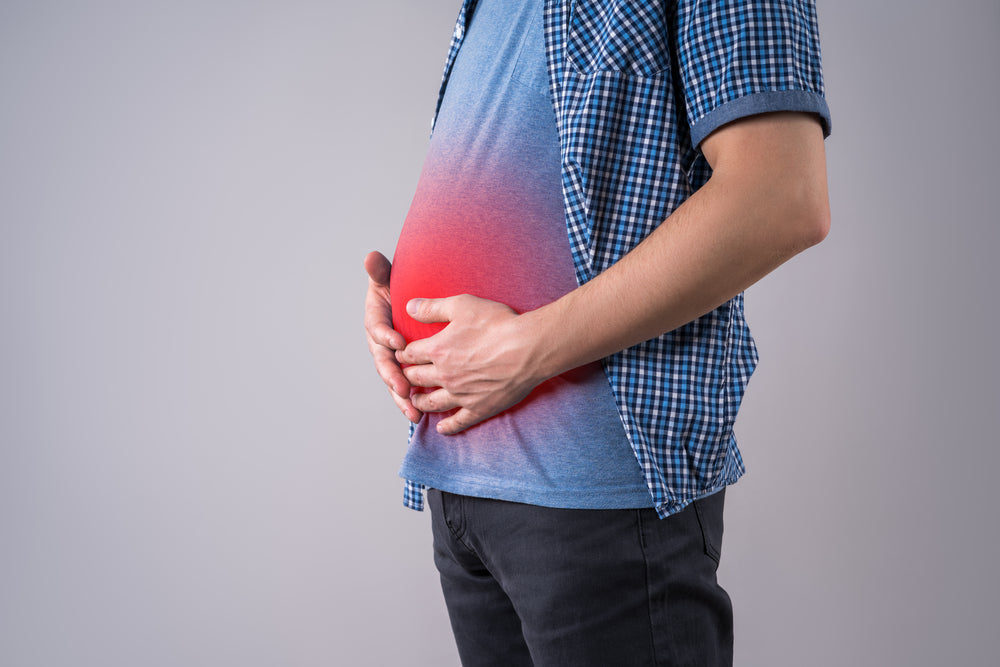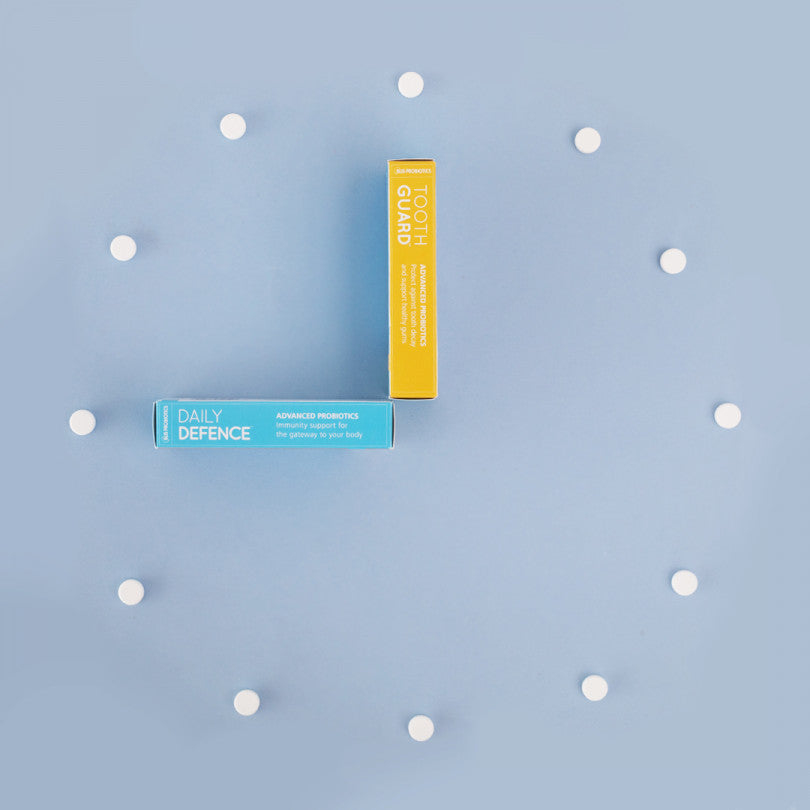Key Takeaways:
- The Disruption: Antibiotics are life-saving but non-selective, often clearing out beneficial bacteria alongside the harmful ones, which can weaken your microbiome.
- Recovery Timeline: It can take several months for your internal environment to naturally return to its baseline after a course of antibiotics.
- Targeted Support: Taking probiotics after antibiotics helps replenish lost "good" bacteria, supporting a faster return to balance and reducing gastrointestinal discomfort like bloating.
- Quality Matters: The best probiotics to take after antibiotics contain clinically researched strains with a high CFU count (colony-forming units) to ensure they survive the journey to the gut.
Imagine your internal ecosystem is a flourishing backyard garden in the heart of Otago. Antibiotics are essential tools for weeding out invasive pathogens, but they can act like a heavy-handed spray, occasionally catching your prized plants in the process. Once the "weeds" are gone, your internal landscape needs careful restoration to prevent opportunistic bacteria from taking over the empty space.
This is where high-quality supplements come in. They act as master gardeners, introducing hardy, beneficial flora back into the soil to ensure your microbiome remains resilient and balanced. In this guide, we will explore the science of recovery and why the right probiotic timing is everything.
How Do Antibiotics Work?
Antibiotics are powerful medications designed to eliminate the bacteria responsible for infection. While they are incredibly effective at targeted "weeding," they do not distinguish between a harmful pathogen and the beneficial bacteria that support your digestion and immunity. This "clean slate" effect can lead to a temporary imbalance, which is why many look for ways of using probiotics instead of antibiotics for minor issues, or at the very least, as a vital recovery tool post-treatment.
Why You Should Take Probiotics After Antibiotics
Antibiotics are a vital medical tool, yet their non-selective nature can significantly reduce the diversity of your beneficial bacteria. Identifying the best probiotics to take with antibiotics is a proactive way to manage this disruption; emerging evidence suggests that specific strains can help reduce the risk of antibiotic-associated diarrhoea and support gut function in the short term. Essentially, understanding how to starve bad gut bacteria by repopulating with beneficial ones is the key to a swift and resilient recovery.
Many clinicians recommend incorporating probiotics both during and after a course of treatment. Resuming or continuing your regimen once the antibiotics are finished is a practical strategy to support microbial balance during the critical early recovery phase. This allows premium, hardy strains to help restore equilibrium as your microbiome naturally rebounds, ensuring your internal ecosystem remains supported and balanced.
How to Choose the Right Probiotics After Antibiotics
Choosing a supplement is like hiring a specialist for your garden. You need a team that is resilient, scientifically proven, and perfectly suited to the environment they will be working in. Here is what to look for:
Look for Specific Strains
Certain probiotic strains are more effective in restoring gut health after antibiotics. To get the full picture, you should also understand how probiotics support a healthier gut in general. Look for proven strains like Bifidobacterium lactis HN019, Lactobacillus acidophilus La-14, Lactobacillus rhamnosus GG, Saccharomyces boulardii. These strains help replenish beneficial bacteria and improve gut health.
Check the CFU Count
The CFU (Colony Forming Units) tells you the strength of the "army" you are sending in. For meaningful recovery after antibiotics, aim for a product with at least 1 billion CFUs to ensure enough live bacteria reach the gut to make a difference.
UltraBLIS®: The Best Probiotic to Take After Antibiotics
UltraBLIS® is more than just a gut supplement; it is a comprehensive microbiome manager. Formulated by the experts at BLIS Technologies in Dunedin, it is one the best probiotics for gut health because it addresses the entire entry path from the mouth and throat to the digestive tract - known as the oral/gut axis.
Unlike standard supplements, UltraBLIS® includes the world-renowned Streptococcus salivarius K12 (BLIS K12®) for the mouth and throat, alongside Bifidobacterium lactis HN019 and Lactobacillus acidophilus La-14 for the gut. This combination ensures that as you support your digestion, you are also reinforcing your "first line of defence" at the gateway to your body.
Cultivate a Flourishing Environment Beyond Probiotics
While supplements provide the "seeds," your lifestyle provides the "climate." To truly restore your health, consider these natural strategies:
- A Fibre-Rich Diet: Fibre acts as a prebiotic (food for good bacteria). Whole grains, seeds, and leafy greens are essential.
- Fermented Foods: Incorporate traditional staples like unsweetened yoghurt, kefir, or sauerkraut to introduce natural bacterial variety.
- Hydration: Water is the foundation of every biological process in your gut.
- Restorative Sleep: Research shows that 7 to 9 hours of quality sleep helps maintain a diverse and healthy microbiota.
BLIS Probiotics® – Your Microbiome Caretaker
Managing your health after a course of medication does not have to be a guessing game. By choosing the best probiotics to take after antibiotics, you are giving your body the tools it needs to return to peak performance. Whether you are looking for winter wellness or long-term digestive support, our Dunedin-based team is dedicated to providing scientifically backed solutions for families everywhere. Explore our range to find the right support for your microbiome journey.
Frequently Asked Questions
How should I take probiotics after antibiotics?
It is generally recommended to continue your probiotic regimen for at least one to two weeks after your antibiotic course ends. This provides the beneficial bacteria enough time to firmly re-establish themselves and reach a stable balance. For best results a probiotic should be taken daily on an ongoing basis.
How to replenish gut bacteria after antibiotics?
A multi-pronged approach is best: start with a high-quality probiotic like UltraBLIS®, increase your intake of prebiotic fibres (garlic, onions, leeks), and avoid highly processed sugars which can feed the "bad" bacteria you are trying to outcompete.
How do I rebuild my immune system after antibiotics?
Since a vast majority of the immune system resides in the gut, rebuilding your microbiome is the first step. Focus on nutrient-dense foods, consistent sleep, and oral probiotics to protect the entry points where pathogens first enter the body.







